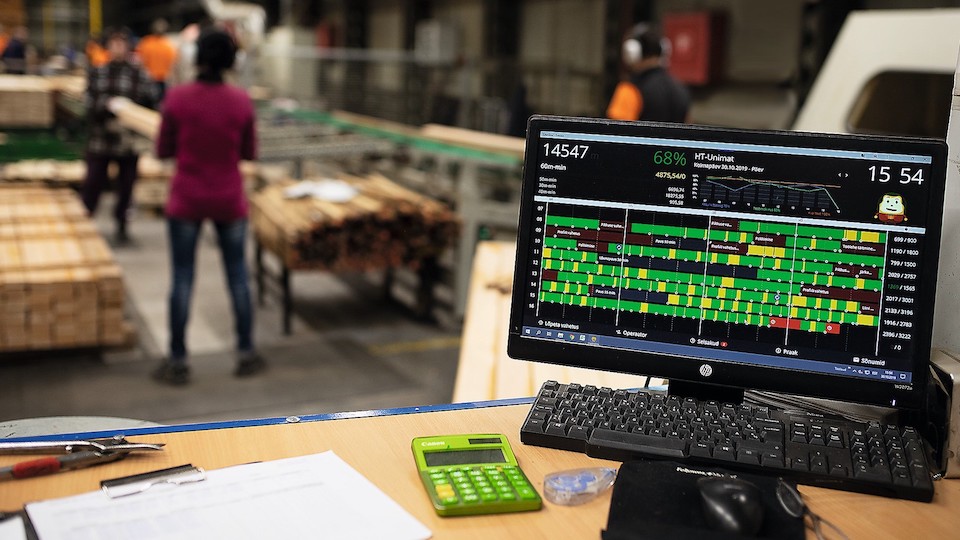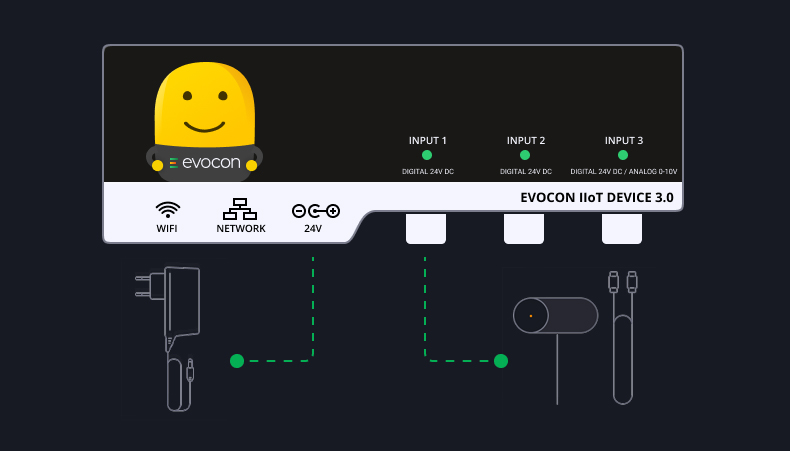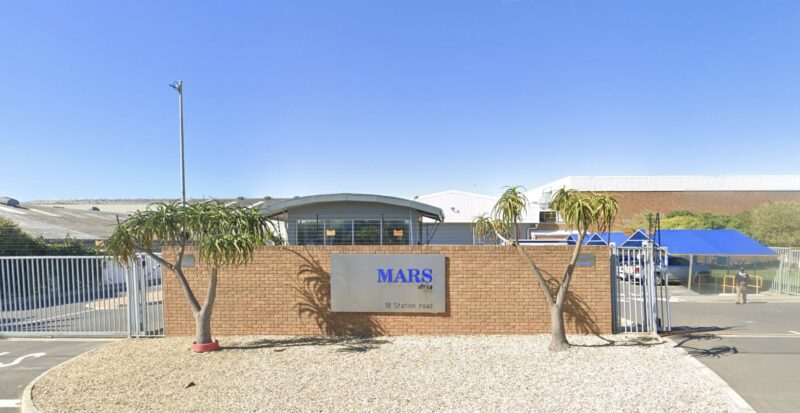At the heart of Supply Chain Management is a focus on making things better, faster, and cheaper. Indeed, this focus permeates the wide variety of functions and tasks that a Supply Chain Manager may be responsible for. In this article, we examine how Supply Chain Managers can benefit from real-time production monitoring and live OEE tracking provided by Evocon.
Evocon Automates Collection of Production Data and Improves Supply Chain Visibility
Today’s Supply Chain Manager is of crucial importance to keeping a manufacturing company profitable and ensuring its customers are satisfied. Moreover, the role provides a strategic planning focus across a group of related functions, including purchasing, distribution, transportation, logistics, and scheduling.
Gone are the days where each of these functions could be managed independently. Now, your overall focus is on designing and optimizing the supply chain from a global, system-wide perspective.
Achieving this group-wide optimization of the value chain is a never-ending journey. Decisions in one part of the business usually impact other links in the chain. As a Supply Chain Manager, you use technological know-how and analytical abilities to provide insights on these effects to decision makers.
That said, you know from experience that your insights are only as good as the data that they are based on. As we will see, Evocon not only reduces cost by automating the collection of production data, but it also improves its accuracy, accessibility, and usability.
So, whether you are reviewing plans to manage inventory levels in a global network of manufacturing plants and distribution centers. Or support local production management decisions with research, recommendations, and strategies. Then the analysis and insights you provide are of critical importance to your company’s efforts to minimize cost across the value chain.
3 Critical Challenges for Supply Chain Managers
- Can we improve forecast accuracy or schedule stability?
- Which suppliers have late deliveries that impact production efficiency and schedule stability?
- What plant should we deploy process improvement teams to for our next 3P/Kaizen event?
- How can we improve productivity, quality, and efficiency across the value chain?
- Should we invest in a new machine for plant A or plant B?
These are just a sample of the types of questions you may need to answer as a Supply Chain Manager. As you likely know from your experience, a primary reason to ask these questions is cost reduction. Moreover, the accuracy and timeliness of the data you have access to influences the quality of your answer. As Dr. Edward Deming so elegantly expressed,
“In god we trust, all others bring data.”
Dr. Edward Deming
Visibility across the supply chain
Supply Chain Managers require transparency and visibility across the supply chain they manage. ERP systems do provide a wealth of data about the supply chain. However, they lack the granular visibility into the production process itself. This increased visibility is the promise of the IIoT (Industrial Internet of Things).
As a Supply Chain Manager, you are no stranger to the power of data. If you are like most of us, you likely have a deep love affair with Excel and eat RAM for breakfast while crunching the latest SQL dump. All kidding aside, Supply Chain Managers do need increased visibility in the supply chain. And this visibility is provided by the data that your organization has available. So, if you are still relying on only an ERP system and manually collected OEE, then your visibility is certainly limited, likely incomplete and inaccurate.
Learn more: Manual vs automated data collection
Supplier performance management
While ERP systems are great for collecting data about supplier quality and delivery performance, they do little in the way of quantifying how late deliveries or non-conforming products impact production downtime.
Most mature procurement organizations will have some form of Supplier Performance Management process in place. It is likely that, at some point, you will find yourself involved in this process. Without an understanding of the magnitude of loss that each supplier may be contributing through late deliveries, it is difficult to know which suppliers should receive the most attention from your limited resources.
Evocon is changing this situation by providing you with the data you need to understand when downtime is caused by “waiting on material” so that you can work with the right suppliers to improve on-time delivery and reduce costly production downtime.
Validating results of process improvement projects
As a Supply Chain Manager, you have likely been involved in Process Improvement Projects. Once the projects conclude and the team is disbanded, it can be challenging and time-consuming to validate that the projected results are realized.
Imagine the following scenario that one Supply Chain Manager faced. You are working to support several manufacturing plants for a division of a large multinational. One of your performance goals for the year is to deliver $4.2M in cost savings. You start by working with teams at each location to determine what projects are in the pipeline. Armed with this information, you work through the business case for each to arrive at projected savings for each project. Once satisfied that the projects are viable, you create a time-phased chart showing cumulative monthly buckets of expected savings.
One of the projects you are monitoring and reporting on focuses on reducing machine downtime at a plant. Unfortunately, the plant has limited OEE data, so you request that the amount of downtime be manually tracked by operators on the floor.
Your division VP of Supply Chain holds monthly business reviews and wants to stay on top of high-profile initiatives that impact quarterly earnings calls. No problem, you have your chart and are ready to present, but there is one question that comes up time and time again. How much of these projected savings have been realized?
Because your request to manually track machine downtime is not a standard process, not to mention is manual, it is likely incomplete and possibly not accurate. And therein lies the challenge in answering the VP’s question. As we will see, Evocon is changing this situation by automating collection of production data.
3 Ways Supply Chain Managers Benefit from Evocon
Evocon’s OEE software provides real-time production monitoring that helps manufacturing teams and back-office support functions to understand the production process with live data. In practice, this means insights into problems as they happen and historical process data to identify trends of where your major losses are over time.

Quick access to detailed and accurate production data improves visibility.
Real-time production monitoring of OEE provides Supply Chain Managers with greater granularity into plant performance than was previously possible. By automating the collection of OEE data, Evocon eliminates opportunities for human error. Moreover, this also reduces your costs associated with the effort. The result is more detailed and accurate production data that is easily accessible from our cloud-based solution.
Real-time Production Monitoring
Track and analyze the performance of all your production shifts across different stations, factories and countries. Free for 30 days.
Standardized data across the supply chain allows for the sharing of best practices.
If you are a Supply Chain Manager supporting several manufacturing plants, you can benefit from having standardized production data from across the supply chain. For example, if your process for monitoring OEE is the same across facilities, then you can share best practices across the organization. This will allow you to more effectively leverage your human capital to improve the organization as a whole.
Real-time production monitoring helps you stay competitive.
Globalization has brought substantial competitive pressure to bear on manufacturers in the past 30 years. Today most market leading companies have adopted real-time production monitoring. They understand that it is a required capability for the future. In short, it is quickly becoming a necessity to remain competitive in most markets. Moreover, much like lean thinking is standard practice today, production monitoring and OEE will be tomorrow.
The Bottom Line

As a Supply Chain Manager, you play a significant support role in today’s manufacturing environment. You are responsible for supporting strategic decisions that heavily influence the profitability of the company. If, until now, you mainly rely on ERP data or manually collected production data, then this limits your visibility into the supply chain you manage.
With Evocon’s production monitoring and OEE software, you access production data that is more reliable, more accurate, and more granular than ever before. We enable you to make data-driven decisions without having to dedicate significant resources to the task of data collection.
Why Start With Evocon Today?
Automating and standardizing data collection processes for the manufacturing plants you support reduces costs substantially as compared to manual collection. Moreover, you can eliminate the delay to process and reconcile the information through the use of our cloud-based dashboard.
The result is easier access to higher quality data that you can use to base your decisions and recommendations on. This is what Evocon is all about: empowering your decision support and analysis processes so you can guide manufacturing leaders to better business outcomes.
You can get started today with our free trial and begin to save time on automated data collection immediately.

